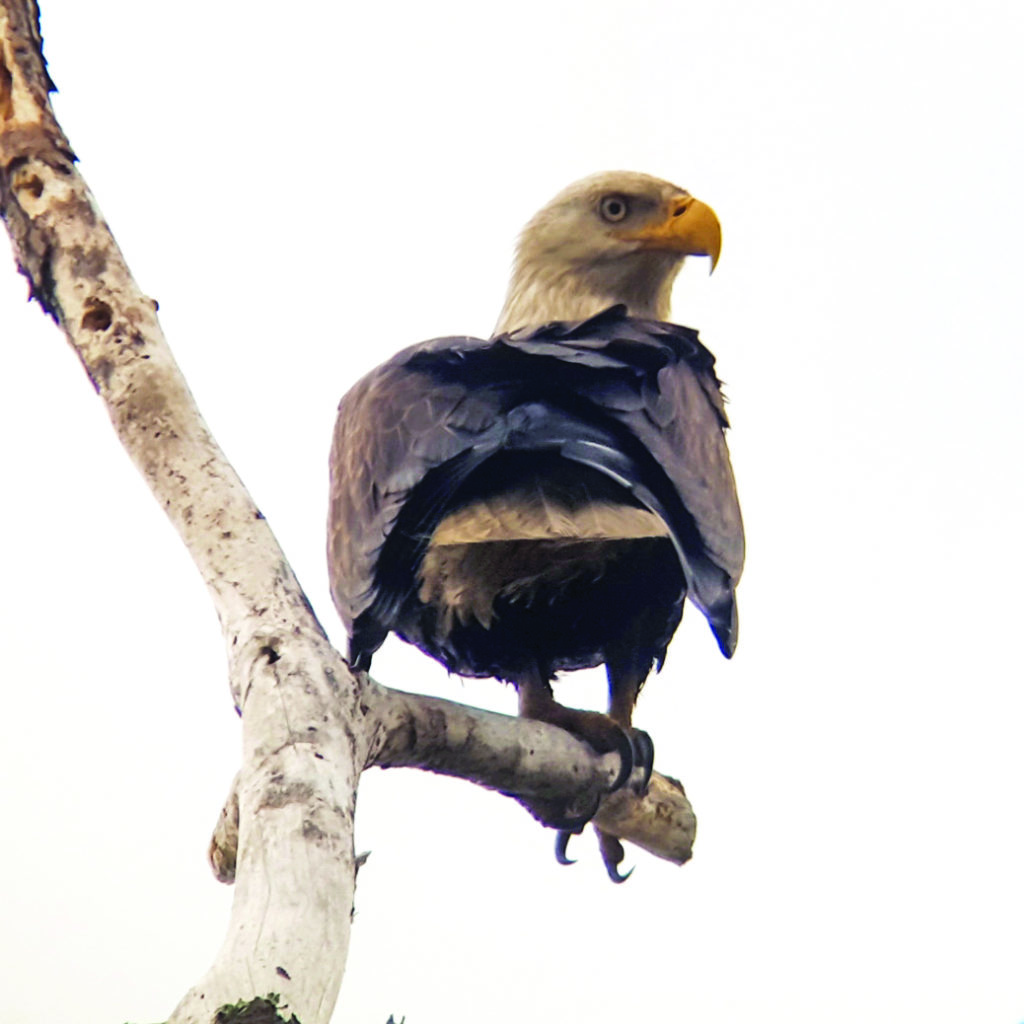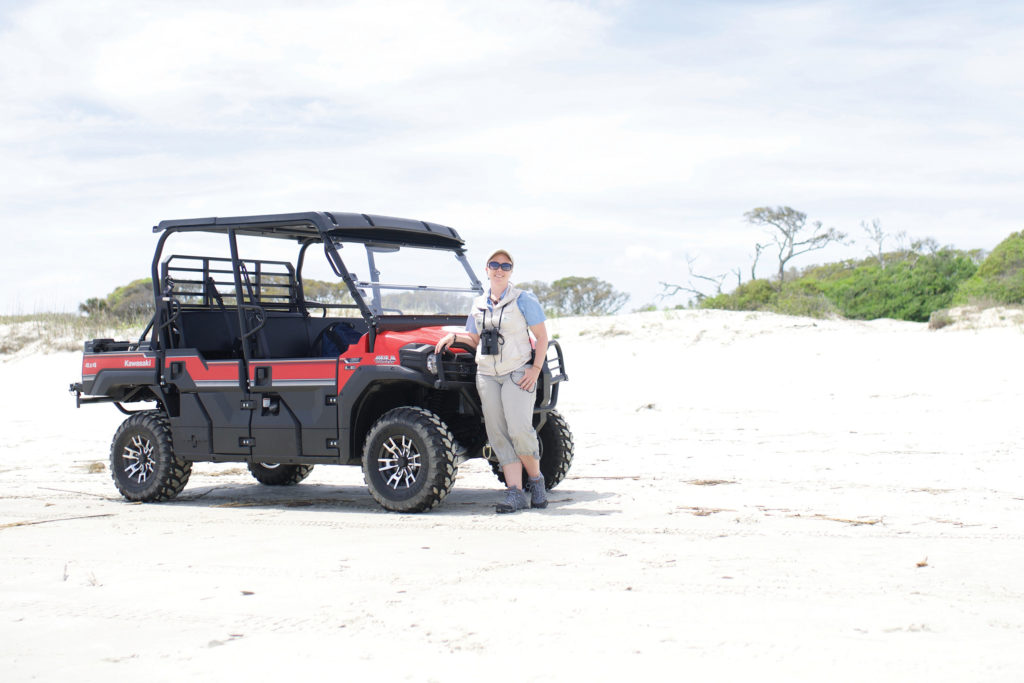There’s a fine line between engaging with the environment and intruding on it. It’s the job of Jekyll’s park ranger to help people see it.
By Justin Heckert
Breanna Ondich has a pretty great opening line. Find anything cool? she asks a little boy with his feet in the ocean, who has been lifting sand dollars merrily off the beach and into a bucket. It is a calculated line, something Ondich has thought about, and works both as an introduction and to disarm. From the bucket the boy unearths a dripping sand dollar. Ondich is wearing a tan vest that says PARK RANGER on the back and brand-new Merrell boots, her hair pulled behind a visor.
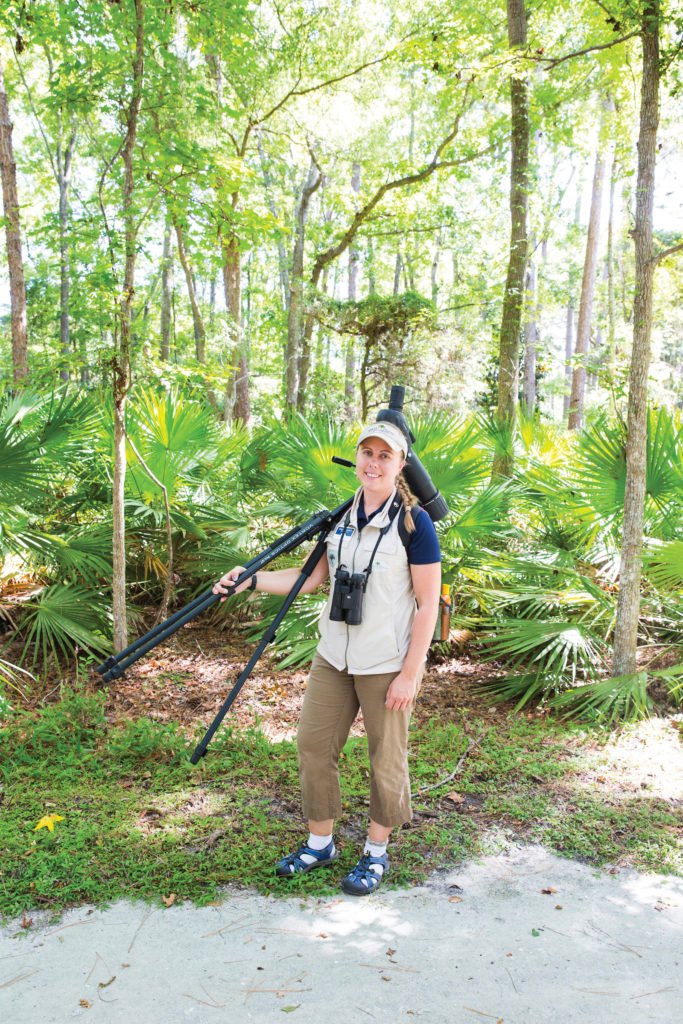
“See, he’s still alive,” she says, pointing at the sand dollar’s fuzzy skeleton. “We need to keep him in the water. You’re free to take the white ones. Make sure you put the ones that are alive back.” The boy’s mom is also watching. They have just learned the difference between a dead and a very much living part of the island’s ecosystem.
“Thank you, ma’am,” the boy says.
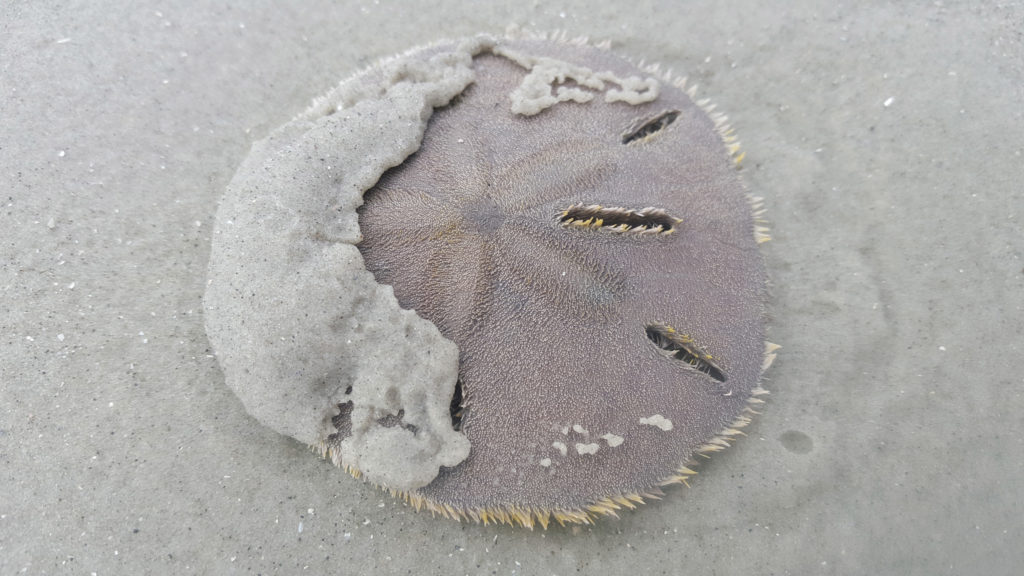
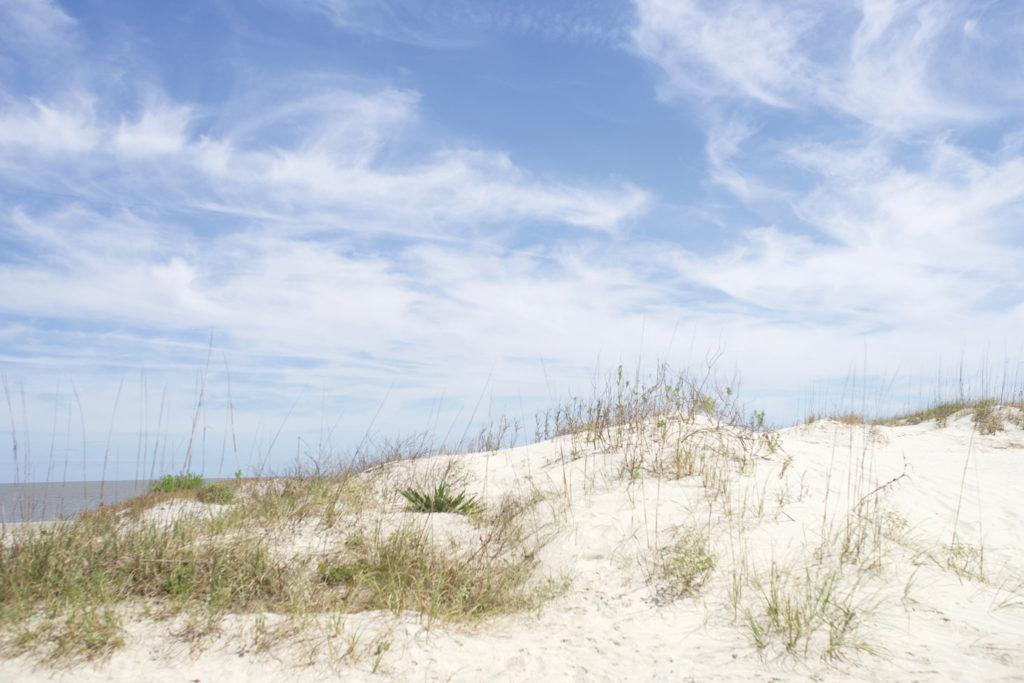
As the island’s first park ranger in recent history, Ondich, who goes by Bre, has to approach people like this every day. The elderly woman with a thick Georgia accent looking to decorate her sewing machine with coral. The tourists disobeying the signs and walking across the dunes. A lady and her daughter feeding raccoons at a picnic spot. The job description of a ranger—not only being outside, but educating people about the things that are there.
It’s a Friday morning and Ondich is behind the wheel of a Polaris Ranger with a loud diesel engine. In the cup holder she has a Tervis tumbler with a friendly sea turtle monogram. She drives onto a place called Driftwood Beach, where the preserved trees lean over the sand. She spots a giant piece of cardboard that has drifted onto the beach and puts it in the Polaris—another part of her job that never ends. The ocean is always bringing something in, and then leaving it behind for her to pick up.
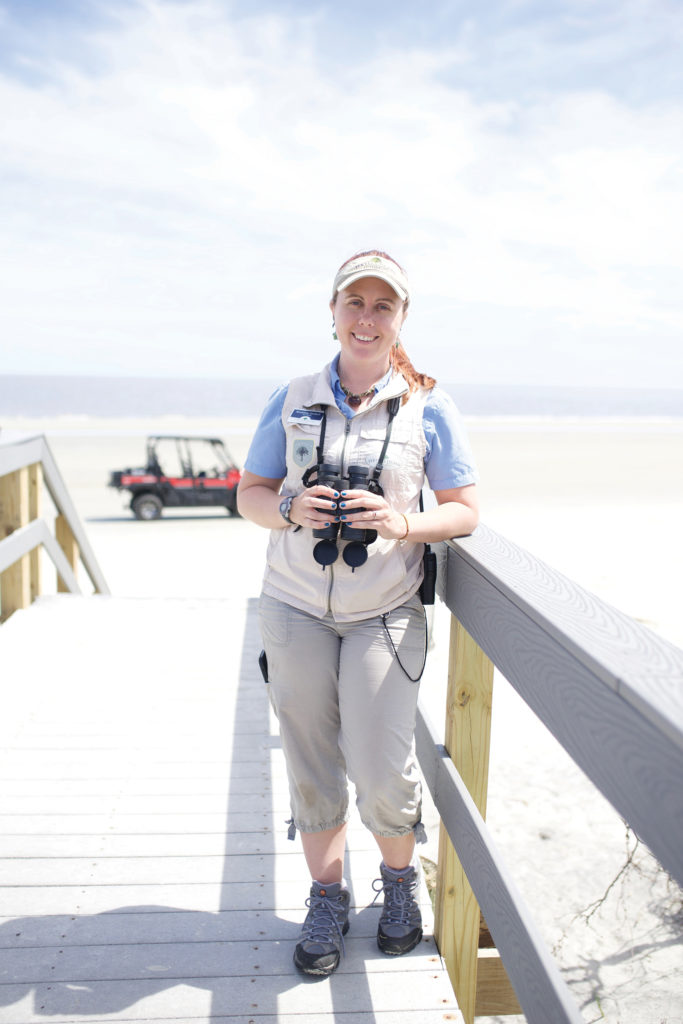
Ondich, twenty-nine, carries a backpack full of brochures, bird and butterfly guides, and plastic bags for gathering trash. She wears binoculars for spotting birds but also to look at people, to see what they’re doing. She has insect repellent and a first aid kit, for jellyfish stings.
“I like meeting people and telling them about the island,” she says. “I educate and enforce. We can have a million papers or studies out there, but unless you find a way to take people to see it, or touch it, or experience it, you’re not changing their behavior. If you’re going to make an impact, to keep the beach healthy, you need to be able to educate people. In that way I’m kind of a face for environmental stewardship—of what the island stands for.”
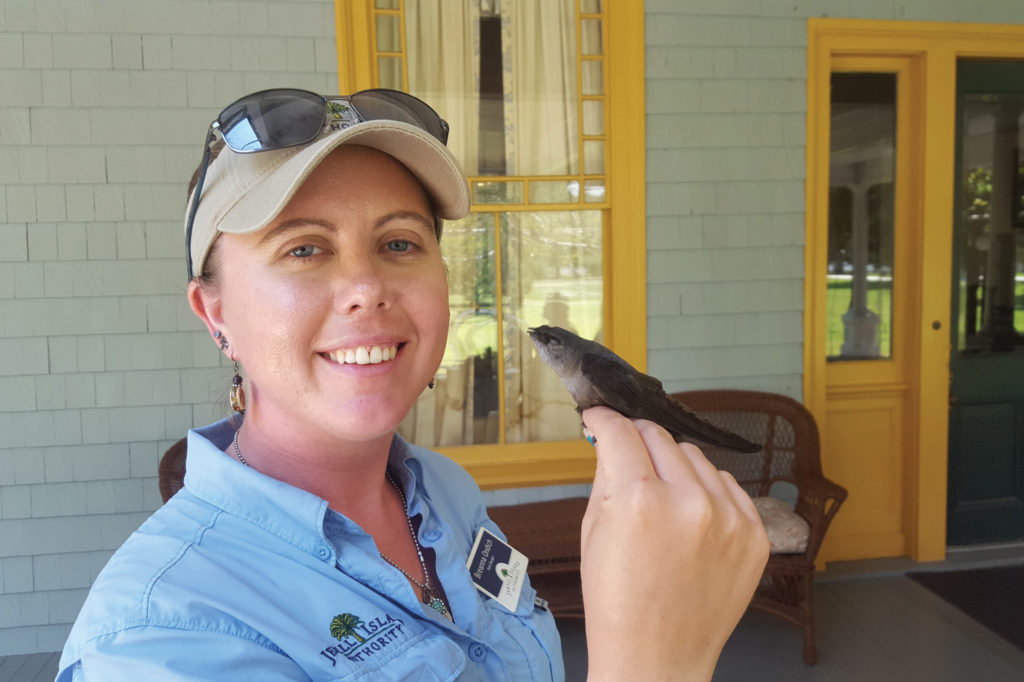
The island really needed her. To monitor sea turtles nesting at 3 a.m. in the summer on the darkened beach; to patrol, in the Polaris, people leaving trash in the picnic areas; to implement a colorful and informational wildlife placard at Horton Pond, describing the alligators and turtles basking in the sun. Also, not everyone knew they weren’t supposed to feed potato chips to seagulls; she had to tell them.
Ondich spent parts of four years as an AmeriCorps member on Jekyll, working with sea turtles and looking for their nests on the beach, and eventually she knew every part of the island. After her term of service was up and she had to get a job, she was thinking about working as a wildlife observer on a dredge boat. The Jekyll Island Authority wanted to figure out how to keep her.
“When it clicked for me, we have to get a park ranger, was the summer of 2014, the summer before Bre started,” says Ben Carswell, director of conservation for the authority. “I’d go on a walk on the beach on personal time, and nowhere I looked on the dunes were there not footprints. Everyone was walking on the dunes and they probably had no idea they shouldn’t be. That was a rule that was being completely disregarded by massive amounts of people. The vegetation there is super sensitive to being walked on.”
Ondich grew up in a house in the woods in northern New Jersey. “The pace on the island reminds me of home,” she says. She caught garter snakes in her yard and wanted to keep them all. She once brought forty newts into the house for exactly one day, to study their habits. Ondich knew in middle school she wanted to work outdoors and especially in the water, and she majored in marine biology at the University of Tampa. She pictured studying whales and dolphins out in the middle of the ocean. She says, laughing, “Dolphins turned out to be like children. Too dramatic for me.”
The Jekyll Island Authority created the park ranger title in 2015 specifically for Ondich. No one can be completely sure, but Carswell thinks it’s the first such designation for the island.
“Bre is an ambassador for our conservation on the island and the stewardship ethic we want to instill in the public,” Carswell says. “She has one personality trait that’s very critical for the job: She is someone who can simultaneously come off as friendly and authoritative.”
“Welcome, everybody. I’m Bre. i’m the park ranger on Jekyll Island.” It’s a Saturday in January, hours before a storm will lash the beach; the tops of the pine trees in the ancient maritime forest quiver slightly in the gray sky.
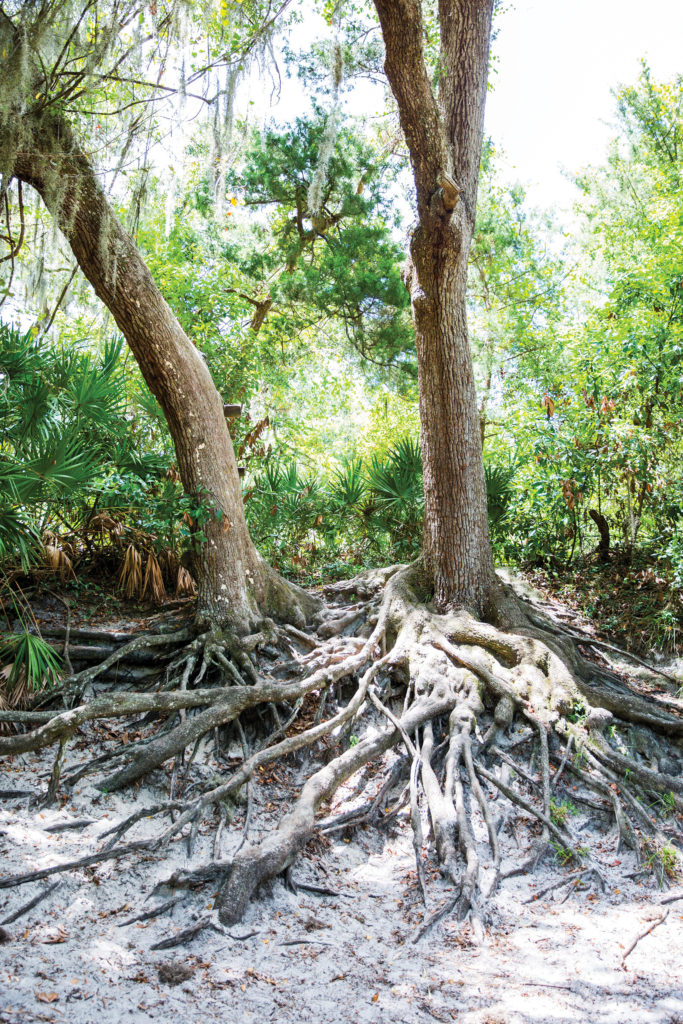
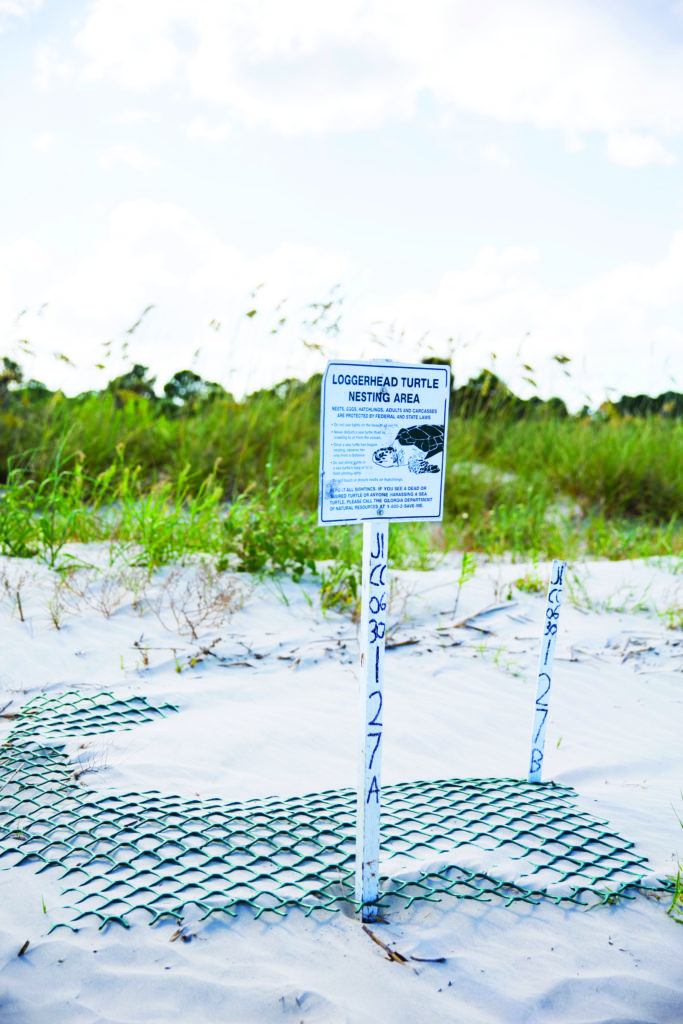
Ondich is encircled by a group of tourists and locals, having led them on a Ranger Walk into the forest. The walks, at $8 a person, offer the chance to learn about the island’s history and possibly see some birds or wildlife, depending on the season. Bre is wearing her vest and backpack and visor and has a Vortex Optics tripod slung over her shoulder with a powerful spotting scope to see far into the trees. She has been talking about the natural history of the island and ripping up black cherry and camphor tree leaves so everyone can identify them and smell them. She stops, sets the tripod up on the path, points the scope in between some live oaks. At first, looking through the eyepiece, it’s tough to tell there’s anything else but other trees and hanging moss. “You should see a fuzz ball bouncing around,” Ondich says. Sure enough, after some rustling, a baby bird head pokes up. The chick, with its oversized beak, is three weeks old. “I haven’t confirmed if there are one or two of them,” she says. The members of the group quietly take turns looking into the scope. The nest they’re staring up at is nearly five feet in diameter and made of pine needles, feathers, and moss. There is an echo of rustling leaves overhead. Then a gasp.
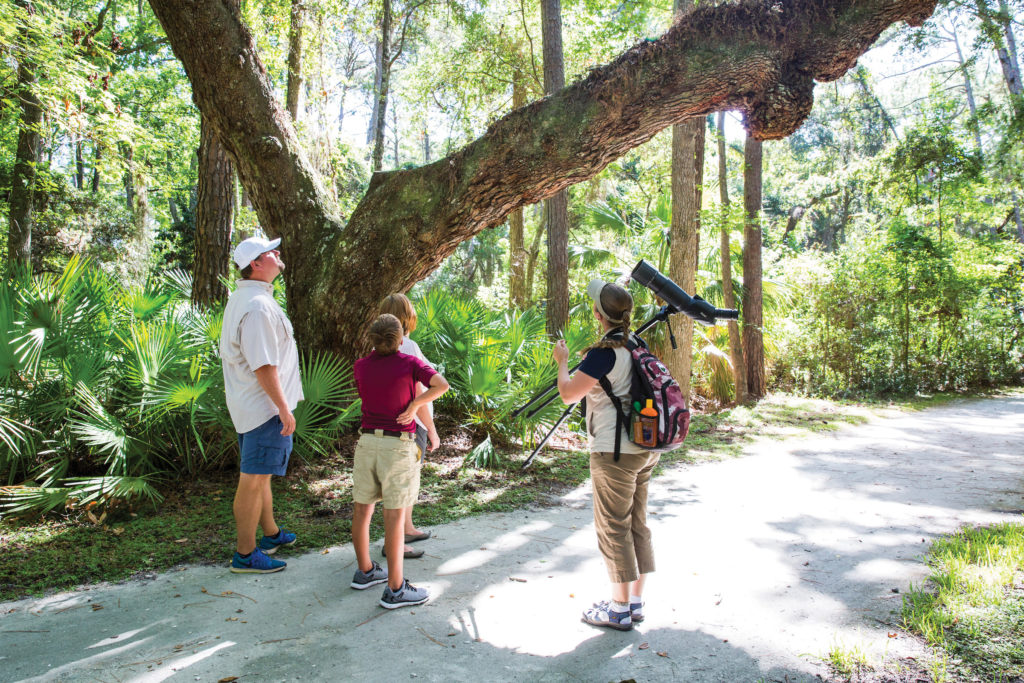
“Look!” Ondich says. High up on an oak, one of the parents of the baby bald eagle is perched. Staring at it with the gray backdrop of the sky is like looking at a postage stamp. The parent eagle—Ondich isn’t sure if it’s a mom or dad—stands there, preening, looking back and up, unaware. Ondich begins to take pictures through the lens of her Canon Rebel T-5 camera—pictures that will later be used for the island’s Facebook page. Everyone in the party has their neck craned. This lasts several minutes, until Ondich starts explaining how the eagles sit on the eggs during incubation and the first week or so after the hatch. After that, the adults are busy hunting and the chicks growing.
“By the end of March, the chick will be the same size as the adults,” she says.
For all Bre’s knowledge and experience working outdoors, she’s still in awe of the bird, far up in the tree—just like everyone else.
“This is not something you see every day.”
